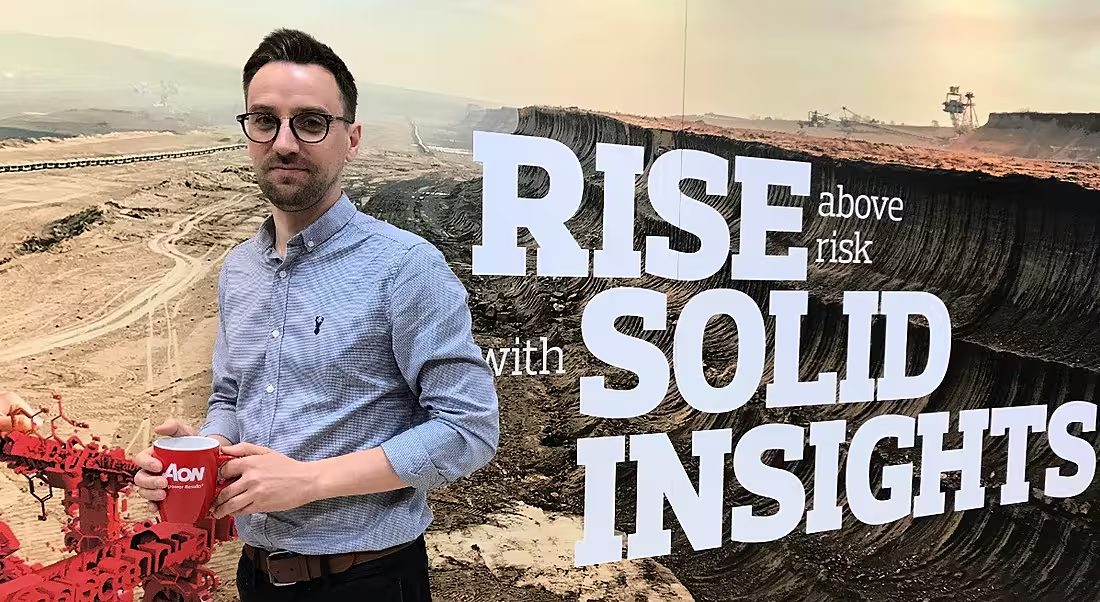What is a typical day in the life of an enterprise delivery lead? Wayne Walsh of Aon discusses being a scrum master, using Agile strategies and working across multiple projects.
Wayne Walsh is an enterprise delivery lead with Aon’s Centre for Innovation and Analytics (ACIA).
He told Siliconrepublic.com about his journey from joining the company as a scrum master to his current position, which he described as “not necessarily something traditional in the market”.
‘Coming from a background as both a software developer and scrum master, the skills I have learned in those roles are huge contributors to how I work now’
– WAYNE WALSH
What is your role within ACIA?
I joined ACIA in 2018 as a scrum master. If you are not familiar with the term ‘scrum’ outside of a rugby context, at a high level a scrum master is a facilitator for a software development team, a servant leader who coaches the team on using scrum and Agile methodologies to deliver software.
This year I progressed to a new role as an enterprise delivery lead. It covers many aspects of what a scrum master would do in terms of facilitation, but outside of the development teams at project and programme level.
I’m an Agile lead, which means I help increase the visibility and accuracy of our projects using Agile practices and frameworks.
If there is such a thing, can you describe a typical day in the job?
No day is ever really the same. Where we are in our yearly cycle will have a big effect on how my day looks. At certain calendar milestones, specifically around moving from one quarter to the next, I’ll be involved in planning meetings and workshops. Other parts of the year will be more focused on our Agile strategies and goals.
Then there is the day-to-day of working directly with our scrum masters and supporting our colleagues, which includes product owners, business analysts, data engineers, developers and many more. I try to understand any issues they are having and work to find solutions. Some of that will happen through our ‘scrum of scrums’, which I facilitate, and often through regular face-to-face conversations.
I also support and give guidance on Agile topics, and lead initiatives to continually improve our practices across ACIA.
What types of project do you work on?
My role means I’m involved at some point with most of the projects happening within ACIA. This gives me a great opportunity to work and learn about many different areas, from traditional software development to data and analytics.
Within our Agile team, we also have our own projects, which could range from improvements in our ways of working to the implementation of tools to measure metrics on how we work.
What skills do you use on a daily basis?
Coming from a background as both a software developer and scrum master, the skills I have learned in those roles are huge contributors to how I work now. I always look to my logical and analytic learnings when trying to understand a workflow or measure and improve a process. My training in software engineering and UX helps me evaluate these problems through a systematic and user-centred approach.
The skills I learned during my time as a scrum master are useful now in my daily work, from facilitation and organising to the more empathetic side of supporting people with understanding.
Do you have any productivity tips that help you through the working day?
I think my biggest productivity tip is to create times of focus and reduce context switching. This is not always possible, so when working on multiple things, find a way to track your progress so that it’s easy to pick up where you left off.
I always have OneNote open for just capturing information on things I am working on or must do.
When you first started this job, what were you most surprised to learn was important in the role?
Time management – thankfully, one of my suits! But my role now means I am involved in so many things from working with multiple projects and large planning sessions to one-to-ones, the list goes on – managing my time now is so important.
How has this role changed as the tech sector has grown and evolved?
This is a difficult one in that my role is not necessarily something traditional in the market. Although I think with the tech sector changing and moving so fast, roles like mine are becoming more common.
If we look at software development in general, more companies are looking to frameworks like SAFe (Scaled Agile Framework) and recruiting release train engineers, while others are looking for Agile coaches. I think mine falls somewhere in the middle.
What do you enjoy most about the job?
This might sound like a cliché, but I enjoy getting to work with so many brilliant people on a daily basis. My role gives me access to so many aspects of ACIA that not a day goes by where I’m not engaging with different people on different subjects.




